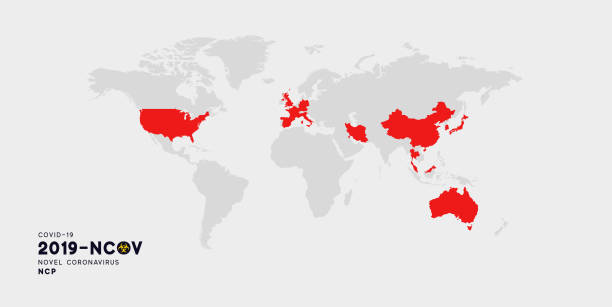Coronavirus 2003: A Look Back at the Emergence of SARS-CoV
In the early 21st century, the world faced a formidable public health challenge with the emergence of the coronavirus in 2003. This novel virus, named Severe Acute Respiratory Syndrome Coronavirus (SARS-CoV), marked a pivotal moment in our understanding of infectious diseases and global health security. The events surrounding the outbreak of the SARS virus underscored the importance of timely and coordinated responses to mitigate the impact of emerging infectious diseases.
Origins and Transmission:
The first cases of SARS were reported in November 2002 in Guangdong, China. The virus was initially mysterious, causing a severe respiratory illness in those infected. It soon became clear that the virus was spreading rapidly through close person-to-person contact, often within healthcare settings. This mode of transmission posed a significant challenge in controlling the outbreak.
Identification and Sequencing:
The identification of the virus and its genome sequencing were pivotal in understanding its origin and characteristics. Scientists quickly isolated the virus responsible for SARS and determined that it was a new type of coronavirus, closely related to those found in bats. This marked the first instance of a coronavirus being recognized as a cause of severe human disease.
Global Spread and Containment Efforts:
The virus did not remain confined to China's borders. Infected individuals traveled internationally, leading to outbreaks in several countries. This prompted the World Health Organization (WHO) to declare a global health alert. Swift containment efforts were initiated, involving travel advisories, quarantine measures, and intensive surveillance. These actions helped limit the spread of the virus and mitigate its impact.
Challenges Faced:
The SARS outbreak exposed various challenges in responding to emerging infectious diseases. One major issue was the delay in sharing information between countries. China initially withheld information about the outbreak, hindering global efforts to respond effectively. Additionally, the lack of a standardized approach to managing cases and controlling transmission highlighted the need for international collaboration and coordination.
Scientific Advances:
The SARS outbreak spurred remarkable scientific progress. Within months, researchers had sequenced the virus's genome, enabling rapid development of diagnostic tests. This experience laid the groundwork for future advancements in virus detection and monitoring. The outbreak also led to a better understanding of how coronaviruses interact with the human immune system, informing subsequent research.
Lessons Learned:
The SARS outbreak of 2003 served as a wake-up call for the global health community. It emphasized the importance of transparency, early reporting, and international cooperation in dealing with emerging diseases. The establishment of the Global Outbreak Alert and Response Network (GOARN) was a direct response to the gaps identified during the SARS crisis, providing a framework for collaborative efforts in responding to outbreaks.
Legacy and Impact:
The SARS outbreak left a lasting impact on global health policies and practices. It prompted countries to invest in preparedness and response mechanisms, recognizing that diseases could easily cross borders in our interconnected world. The experience gained from SARS was crucial in shaping responses to subsequent outbreaks, including the H1N1 influenza pandemic in 2009 and the ongoing challenges posed by novel coronaviruses like SARS-CoV-2, responsible for the COVID-19 pandemic.
Conclusion:
The emergence of SARS-CoV in 2003 was a significant milestone in the study of emerging infectious diseases. It highlighted the need for international cooperation, transparent communication, and rapid scientific collaboration in responding to public health threats. The lessons learned from the SARS outbreak continue to influence our approach to global health security, underscoring the ongoing importance of vigilance and preparedness in the face of new and unpredictable health challenges.
In the early 21st century, the world faced a formidable public health challenge with the emergence of the coronavirus in 2003. This novel virus, named Severe Acute Respiratory Syndrome Coronavirus (SARS-CoV), marked a pivotal moment in our understanding of infectious diseases and global health security. The events surrounding the outbreak of the SARS virus underscored the importance of timely and coordinated responses to mitigate the impact of emerging infectious diseases.
Origins and Transmission:
The first cases of SARS were reported in November 2002 in Guangdong, China. The virus was initially mysterious, causing a severe respiratory illness in those infected. It soon became clear that the virus was spreading rapidly through close person-to-person contact, often within healthcare settings. This mode of transmission posed a significant challenge in controlling the outbreak.
Identification and Sequencing:
The identification of the virus and its genome sequencing were pivotal in understanding its origin and characteristics. Scientists quickly isolated the virus responsible for SARS and determined that it was a new type of coronavirus, closely related to those found in bats. This marked the first instance of a coronavirus being recognized as a cause of severe human disease.
Global Spread and Containment Efforts:
The virus did not remain confined to China's borders. Infected individuals traveled internationally, leading to outbreaks in several countries. This prompted the World Health Organization (WHO) to declare a global health alert. Swift containment efforts were initiated, involving travel advisories, quarantine measures, and intensive surveillance. These actions helped limit the spread of the virus and mitigate its impact.
Challenges Faced:
The SARS outbreak exposed various challenges in responding to emerging infectious diseases. One major issue was the delay in sharing information between countries. China initially withheld information about the outbreak, hindering global efforts to respond effectively. Additionally, the lack of a standardized approach to managing cases and controlling transmission highlighted the need for international collaboration and coordination.
Scientific Advances:
The SARS outbreak spurred remarkable scientific progress. Within months, researchers had sequenced the virus's genome, enabling rapid development of diagnostic tests. This experience laid the groundwork for future advancements in virus detection and monitoring. The outbreak also led to a better understanding of how coronaviruses interact with the human immune system, informing subsequent research.
Lessons Learned:
The SARS outbreak of 2003 served as a wake-up call for the global health community. It emphasized the importance of transparency, early reporting, and international cooperation in dealing with emerging diseases. The establishment of the Global Outbreak Alert and Response Network (GOARN) was a direct response to the gaps identified during the SARS crisis, providing a framework for collaborative efforts in responding to outbreaks.
Legacy and Impact:
The SARS outbreak left a lasting impact on global health policies and practices. It prompted countries to invest in preparedness and response mechanisms, recognizing that diseases could easily cross borders in our interconnected world. The experience gained from SARS was crucial in shaping responses to subsequent outbreaks, including the H1N1 influenza pandemic in 2009 and the ongoing challenges posed by novel coronaviruses like SARS-CoV-2, responsible for the COVID-19 pandemic.
Conclusion:
The emergence of SARS-CoV in 2003 was a significant milestone in the study of emerging infectious diseases. It highlighted the need for international cooperation, transparent communication, and rapid scientific collaboration in responding to public health threats. The lessons learned from the SARS outbreak continue to influence our approach to global health security, underscoring the ongoing importance of vigilance and preparedness in the face of new and unpredictable health challenges.




